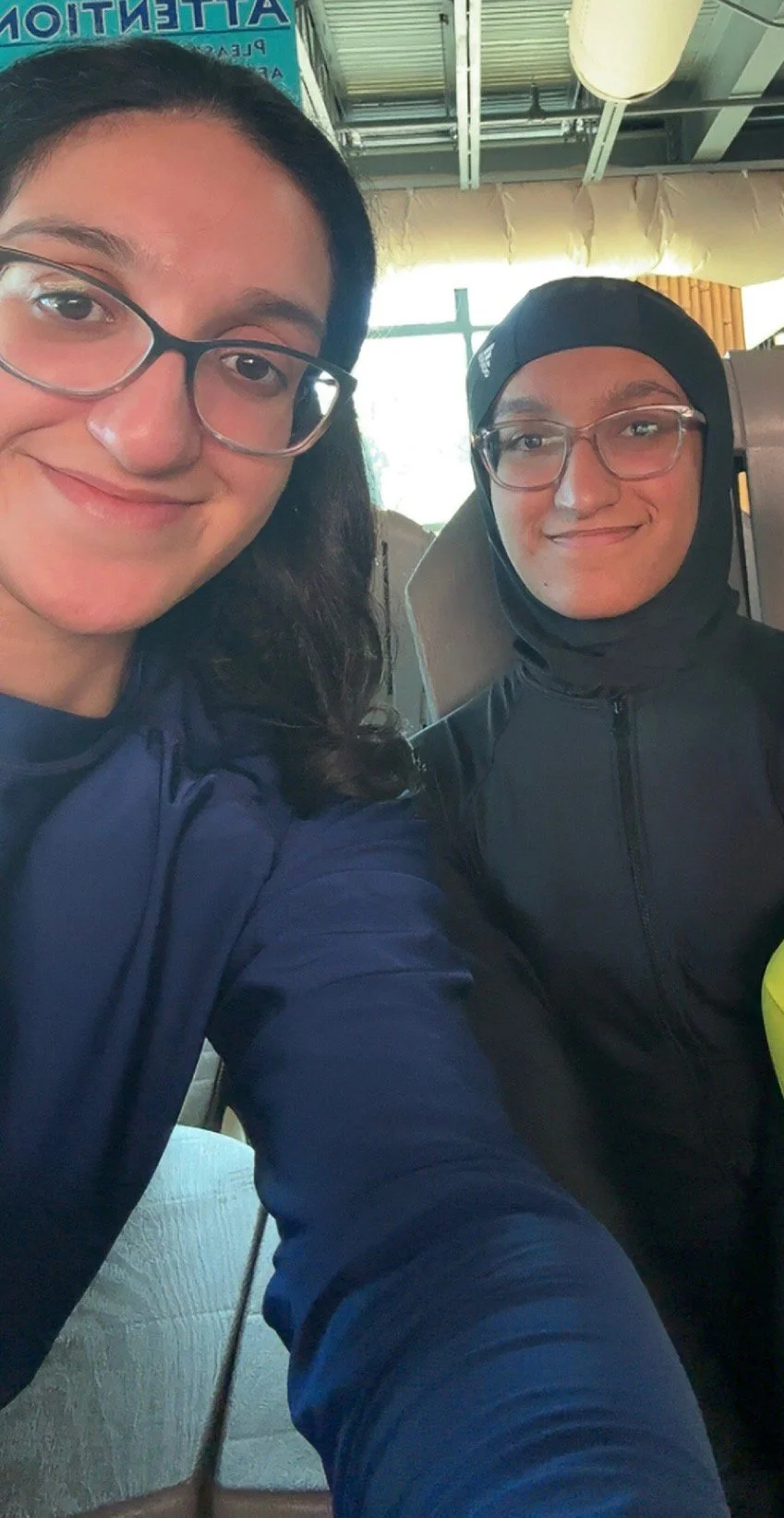THE KHALIL SISTERS
This Spotlight appeared in our September 2025 newsletter.
To start, would you please introduce yourselves and tell us how you got connected to the Foundation?
Hello everyone! I (Haniya right) was diagnosed with VWD type 3 as a newborn. I’m 16, and my sister Sameeha is 24 and does not have the condition. However, that has not stopped us from being the best of sisters and friends. We also have a younger brother (who does not have VWD), but we are all really close and have lots of fun adventures together. My sister and I especially enjoy coming to the sVWD conferences every summer and spending time with the lovely people that make the VWD Connect Foundation so special.
Where does your family live? What is one thing you would encourage a visitor to do if they visited for the first time?
Our family lives in Leesburg, Virginia and we would definitely encourage visitors new to the area to explore Washington, DC! There are so many fun things to do like visiting the many cool museums, the monuments, and the White House. There’s also lots of yummy restaurants and food trucks to try, it is always bustling with activity!
What was the first year your family attended a conference?
The first year our family attended the conference was in 2017. Sameeha’s first year was in 2023… can’t believe it’s been three years! That was also our first sister solo conference and it has been a blast every year since then.
How was the experience different going just you two? Were either of you nervous about it?
We were definitely a little nervous our first year as it was just us two, but it has been truly amazing to know everyone and especially the new patients and their families. We got to participate in the sessions and enjoy the fun activities with everyone, and no parents was a bonus. VWD Connect is a wonderful family and very welcoming to all!
Have you learned anything surprising about each other from attending Foundation conferences together?
One surprising thing we have learned is that older sisters can be bossy sometimes (haha!). We are eight years apart so I think that’s why but even though she can be bossy, I (Haniya) still love her anyway! We do have lots of fun together at the conferences and are always excited to tell the whole family about it when we come back home.
Spoken like a true younger sister! How well does the classic responsible older sister/wacky younger sister stereotype fit your relationship, if at all?
This stereotype is perfect for us! We have always been responsible older sister and crazy younger sister, and we wouldn’t have it any other way.
Has sVWD had any effect on these roles?
Actually, no! Although sVWD is an important part of our lives as a family, it has not affected our roles as sisters. We still have the best relationship and enjoy our time together with our younger brother just as any siblings would. We’re careful with certain activities, but that doesn’t stop us from having fun!
Sameeha, Are there any strategies or “hacks” that you’ve learned for supporting Haniya with her sVWD management?
I am a nurse professionally, so that definitely helps a lot with managing the medical side of the condition. I do feel a strong sense of responsibility for my sister, Haniya, and will always support her no matter what. We recommend having your sibling, if they are old enough, as one of your emergency contacts, so you can always reach them in case of emergency. Also, don’t be afraid to share feelings with one another and talk through your troubles. This could be through words or actions, even doing a favorite shared activity like chatting over ice cream or watching a show or movie together. Even with sVWD, you are unstoppable!
Do you have any general advice for siblings pairs like yourselves?
Whether you both have sVWD or don’t, always support one another. With sVWD, there can be lots of ups and downs, emotionally and physically, and family support is super important! Having a sibling is a huge blessing and we have certainly developed a stronger relationship because of our situation. We often don’t even need to use words, we already know when we need each other.

